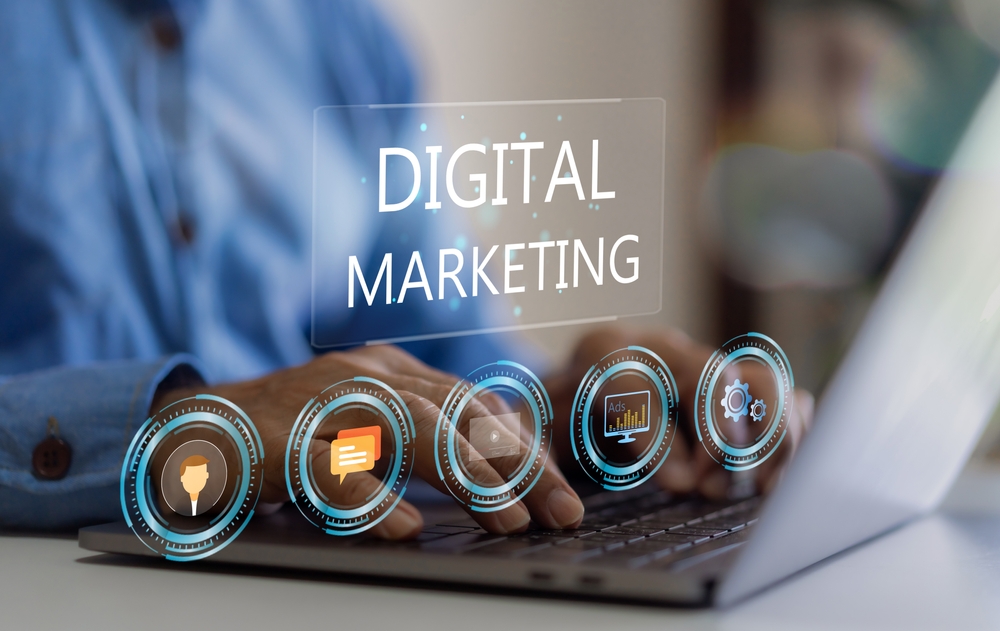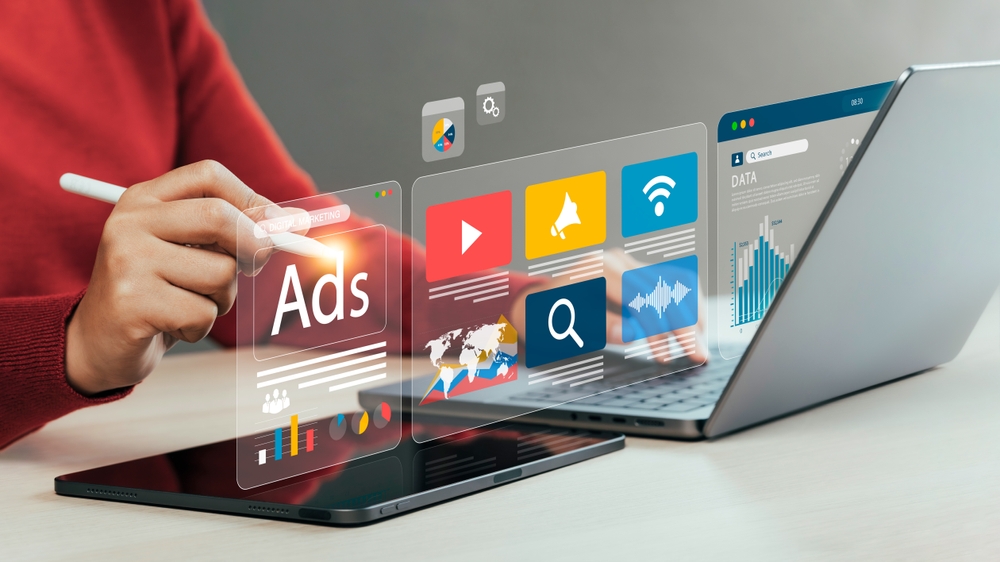Due to technological advancement in today’s world, most organizations are under pressure to transform and fit in this ever-changing market. Probably the best way to do this is through online marketing. But before we define digital marketing and delve into why modern businesses need it and cannot survive without it, we need to understand better what it is. In this detailed article, we will try to answer the following questions: What is digital marketing? What types of digital marketing exist today? How do companies use these types in real life? And finally, what advantages does the digital marketing approach provide to a business of any size?
What is Digital Marketing?
Digital marketing can be defined as selling/marketing goods online and using the Webspace, tools, applications, and media. In contrast with conventional advertising through such vehicles as newspapers, radio, and television, digital marketing utilizes such media as the internet, mobile devices, social networks, search engines, e-mail, and many others.
In its essence, this discipline seeks to inform consumers about businesses through the channels they extensively use—the Internet. It allows for reaching certain groups of audiences, monitoring the success of campaigns, and attempting to correct the results.

Types of Digital Marketing
Before we look at the examples of digital marketing strategies, it is necessary to understand that digital marketing is a very broad term, which covers a plethora of practices and techniques. Here are the most important types of digital marketing businesses use to achieve their marketing goals:
1. Search Engine Optimization (SEO)
SEO refers to the efforts of making a website and the content on the website best placed for the keywords that will make it to a preferential position on SERPs. The higher the rank the better organic (free) visitors that a site gets.
Example: A local bakery incorporates geo-targeted terms like ‘best bakery near me’ into their website to ensure they get traffic from people within the same area looking for freshly baked goods.
Benefits:
Increases website visibility
S attracting high quality and relevant and natural traffic.
Helps to establish long-term brand authenticity
2. Content Marketing
Globally, content marketing is all about using useful, informative material to attract the targeted customers. Such material can refer to a blog entry, a video clip, an infographic, an e-book, and so on.
Example: A software firm writes a blog article with the headline “10 Tips to Increase Efficiency through Project Management Solutions” and promotes its own program.
Benefits:
The strategy helps build brand authority and trust since customers want to deal with companies that have their best interests in mind.
Supports SEO efforts
Increases the site traffic and visit
3. Social Media Marketing (SMM)
Affiliate marketing promotion entails advertising a business and or its products or services on social media platforms such as Facebook, twitter, Instagram, Land inked In among others. Businesses need social media for interaction with the target market, for promotion, and to direct the viewers to their websites.
Example: A fashion retailer posts a sponsored Instagram story promoting the new summer collection to make its followers want to shop.
Benefits:
Increases brand awareness
Enhances customer engagement
Gives an opportunity to directly engage with targeted consumers
4. Website Advertising: Pay-Per-Click Advertising (PPC)
PPC advertising enables business people to advertise their products on search engines social media and other channels. It is a model whereby the firm charges the marketer a cost per individual who clicks their given advertisement. Another well-known PPC platform is called Google Ads.
Example: An e-commerce store is setting up a Google Ad in which the ad directs users to its product page, for those who search the keyword “buy running shoes online”.
Benefits:
Delivers immediate results
Nears the specific stockholder groups with a high level of accuracy
Brings brand recognition to a higher level of awareness on search engines
5. Email Marketing
Email marketing is a technique of sending messages or special offers to a user’s e-mail box. It is a very effective way of managing potential clients and turning them into customers.
Example: An online retailer develops an email blast that will go out to all subscribers with a message similar to ‘We valued your subscription and hereby give you a 20% discount on your first order.
Benefits:
Builds customer relationships
Has a high return on investment (ROI).
Automates lead generation, better customer follow-up, and customer retention
6. Affiliate Marketing
Affiliate marketing is a type of online marketing that involves a business in rewarding other people, usually the affiliate partners for sales or traffic diverted through their affiliate links.
Example: A travel blog writer works with a hotel booking site and gets paid for every click that the reader makes and books for a particular hotel.
Benefits:
Expands brand reach
Rises sales through third-party promotion
Will need payment only once the conversion has been complete
7. Influencer Marketing
Influencer marketing is, therefore, a process of engaging social media enthusiasts who are inclined towards a given brand and can help to market the products or services owned by such a brand.
Example: A skincare company works hand in hand with a beauty vlogger on Instagram who will give a product review and demonstration of the company’s new product line.
Benefits:
Promote brand identity or brand consciousness and nurture the consumers’ trust.
Reaches very niche market ✔
Increases the level of activity visible in social media platforms

Examples of how Digital Marketing works
To understand the power of digital marketing, let’s look at a few real-world examples of successful campaigns:
Nike’s Social Media Campaigns: Nike’s “You Can’t Stop Us” saw millions of engagement in their video campaign because they shared themes that resonated with their target market.
Airbnb’s Content Marketing Strategy: It also contains traveling articles and local experiences, which help drive organic traffic while teaching the site’s potential customers what they could get from a stay at Airbnb.
Amazon’s Email Marketing: Customers can use their computers to recommend the products they are likely to purchase by perusing through their mail that gets customized by Amazon from their purchase history.
Advantages of Digital Marketing for Business.
The level of adoption of digital marketing offers several advantages for a company, regardless of the scale or type of business development – from start-ups to big businesses. Here’s a closer look at its key advantages:
1. Cost-Effective Marketing
com costs less than the conventional marketing technique. Strategies like SEO, content marketing, and email marketing are considerably cheaper in the long run than attempting to secure traditional media outlets.
2. Measurable Results
By contrast to commercials, where there is an immediate perception of its message, digital marketing has tracking of the results in real-time. There are indexes like website traffic, conversion, click-through rates (CTR), and many others.
3. Targeted Audience Reach
Digital marketing means reaching people and their attention can be purchased with the help of the target market, interests and behaviors. Now with the use of Google Ads or even Facebook Ads companies know that the message will get to the appropriate consumer at the right time.
4. Global Reach
Websites sought with available and social advertising networks are good tools that allow a company to penetrate a target audience irrespective of the country it is located in. This capability is particularly important for those e-commerce brands that operate across borders.
5. Personalization and Customization
Email marketing and retargeting ads provide an opportunity to design an individual approach to the client. Customizable messages are ideal for creating the desired audience interaction, and thus the chances of getting clicks are high.
6. Enhanced Customer Engagement
Social media tools give organizations and businesses direct access to customers. This way brands have an opportunity to answer users’ questions, help with problems, and develop a more intimate connection with the audience.
7. Higher ROI (Return on Investment)
Digital marketing is unique because it incorporates metrics allowing organizations to make decisions based on tangible results. Consequently, it is possible to increase revenue for a specific campaign and achieve a better return on investment.
8. Increased Brand Awareness
Social media marketing, SEO and content marketing, billions of people are on the internet, which helps businesses to promote their brands. The better people are aware of a brand, then the better they are likely to become consumers of that brand.
Conclusion
The usage of the internet in promoting goods and services is inevitable in the current business models. It makes it easier for companies to reach narrow markets, check efficacy and even have a higher ROI than that of mass marketing. From SEO, content, PPC and other types of internet marketing to social and influencer marketing – every type is crucial for businesses.
When one learns about the different types of digital marketing and how they work, he or she will be in a better position to create better bonds with his or her audience and also ensure that the business grows more and more popular in the long run. Further, as the expansion of digital technologies courses on, all these strategies will put the companies in a better position to tackle competition in the marketplace.



Hi, this is a comment.
To get started with moderating, editing, and deleting comments, please visit the Comments screen in the dashboard.
Commenter avatars come from Gravatar.